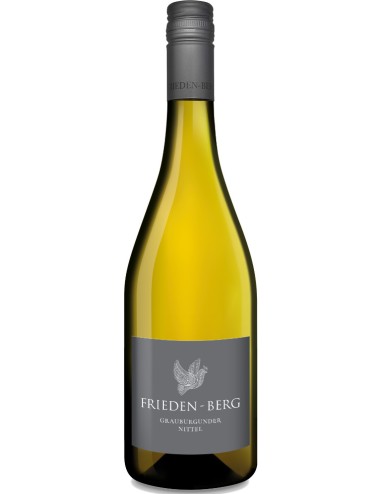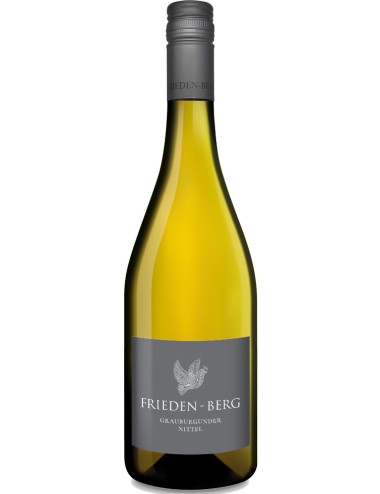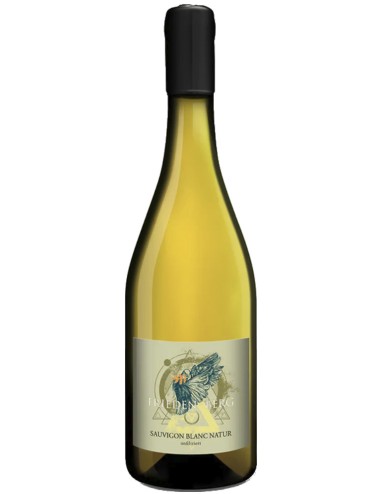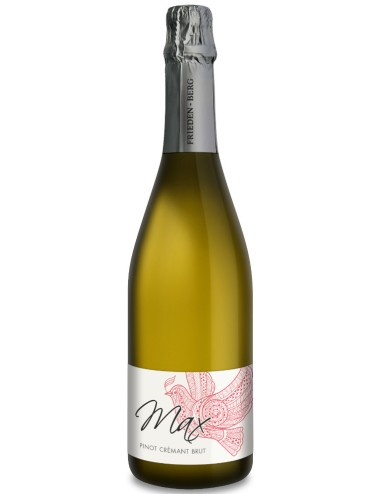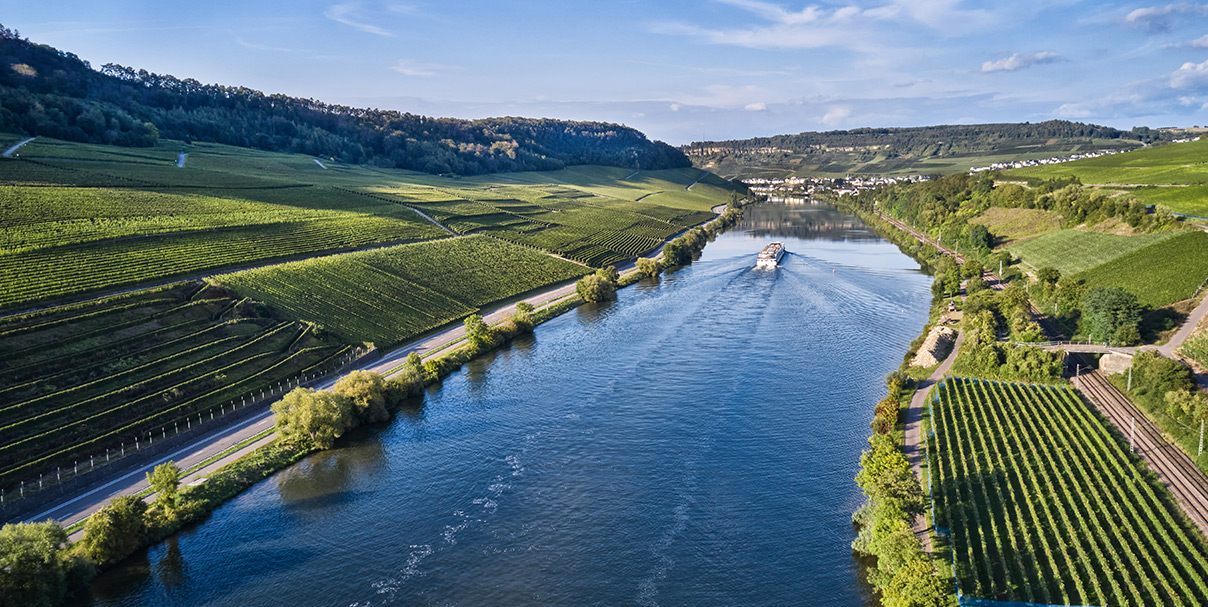
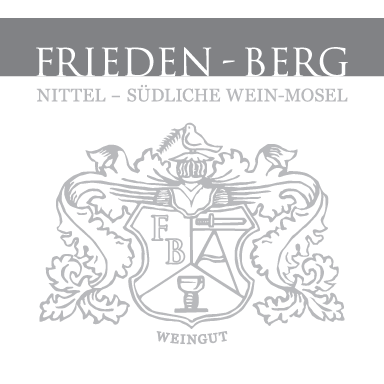
Wine estate Frieden-Berg from Nittel on the upper Moselle
In Nittel on the Upper Mosel, the Frieden-Berg winery is making a name for itself with juicy, dry Elbling wines typical of the grape variety and a wide variety of Burgundy wines, which Gault Millau and Eichelmann are equally enthusiastic about and give their recommendations.
No Product found in this category
No Product found in this category
No Product found in this category
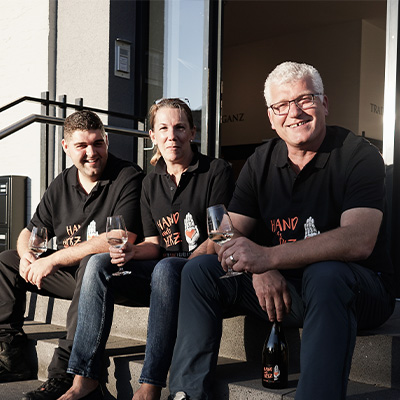
Wine growing family tradition on the upper moselle in Nittel
On the southern Moselle in the picturesque wine village of Nittel, right where Luxembourg and Germany are only divided by the Moselle, is the Frieden-Berg winery - a traditional family business that has been run by the Frieden and Berg families for generations. It is not only a family business, but also one that spans generations. Here, father Horst Frieden and his son Maximillian tackle together to produce a fantastic wine every year. Horst is the owner of the winery and takes on the duties of master winemaker, which is why you'll find him both in the cellar and in the vineyards. His son Maximillian is responsible as cellar master and for the vinification of the grapes
Read More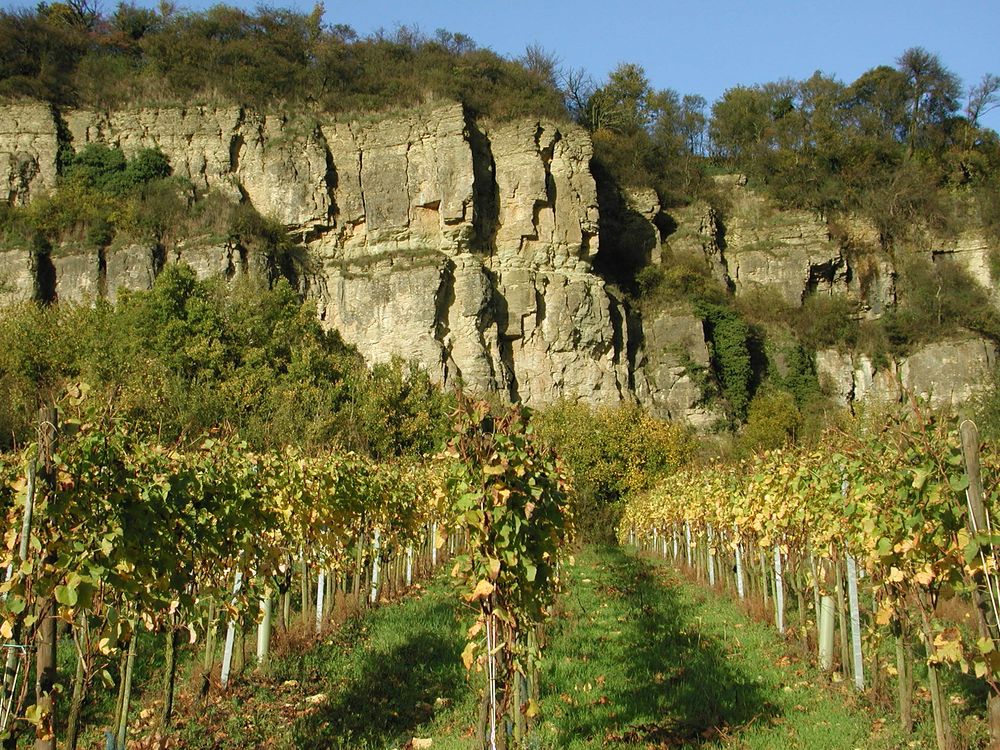
Wines from the upper Moselle with shell limestone soils
A rather Mediterranean climate and the proximity to the Moselle make this area predestined for wine growing. On a total of 250 hectares of vineyards, the noble vines are cultivated here by the winegrowers of the Moselle. The terroir also speaks for an excellent wine, as the soil consists of valuable shell limestone soils. These ensure that the nutrient content of the soil is particularly high, which ensures an intensive development of the aromatic substances, especially in the case of Elbling and the Burgundy grape varieties of the Frieden-Berg winery. In order to preserve the valuable soils, the care of the vineyard is particularly important. Here, great importance is attached to sustainability and the preservation of the ecological balance. This is also reflected in the pruning of the vines: every year a natural wall is formed from the leaves of the plants to protect the grapes. With the help of the foliage wall, it is possible to optimize and control the solar radiation and humidity. Thus, the grapes receive the loving care they need for healthy and strong growth.
Sustainable winemaking results in extraordinary wines in family tradition
In the past, two families joined forces with the aim of producing high-quality, full-flavored wine, and the Frieden-Berg wine estate has been in family hands for several generations now. Under the leadership of master winemaker Horst Frieden and his son Max, who is an expert in viticulture and oenology, real taste experiences are created with great skill and the courage to innovate. Horst is the owner of the estate and takes on the tasks of the master winemaker, which is why he can be found in the cellar as well as in the vineyards. His son Maximillian is responsible for the cellar and the vinification of the grapes and presents his know-how every year.
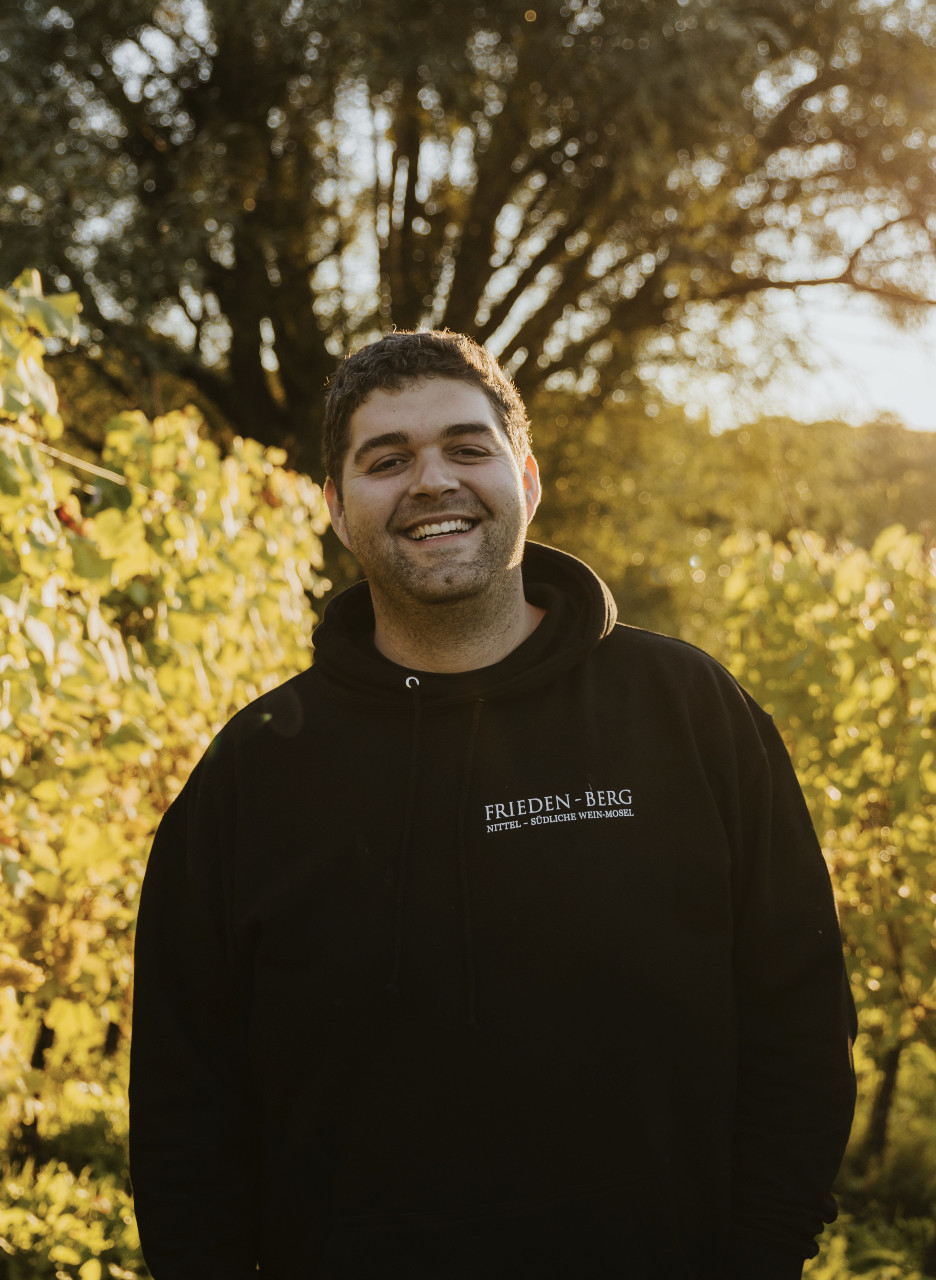
The vineyards of Reichsgraf von Kesselstatt
Josephshöfer
is a monopoly Vineyard of the Reichsgraf von Kesselstatt winery and is located in Graach on the Moselle in the district of Bernkastel-Wittlich It is part of the Münzlay large-scale vineyard. The site has a total area of 5 ha and is solely owned by the winery. It lies 119 to 165 m above sea level and has a south-south-west orientation, as well as a slope of 44 - 53%. Soil conditions: Deep, gray Devonian slate weathered soil with a high percentage of fine soil (a relatively heavy soil by Moselle standards).
The results of this monopoly site are full-bodied, spicy wines with lots of charm and incredible aging potential. Characteristically, the unmistakable aroma of orange blossom and tangerine peel with a hint of wild herbs and earthy spicy components can often be found.
Graacher Domprobst
The Graacher Domprobst is a Grosse Lage and rightly so. The top vineyard site Graacher Domprobst is one of the best that the Middle Mosel has to offer in terms of vineyards. Directly adjacent to the monopollage Josephshöfer and framed by the Graacher Himmelreich, the Domprobst is the centerpiece of the Graacher sites. At 130 to 260 meters above sea level, the Riesling vines grow here, some of which are rootless.
The site is predestined for viticulture. Protected from wind and frost, the grapes continue to benefit from the easily warmed slate soils. Below the meter-thick layer of clay slate weathering is a clay terrace, which has a positive effect on the water supply of the vines during dry phases.
Once upon a time, ⅓ of Graach's wine tithe was due to the Trier cathedral provost. This is how the vineyard site got its name. Wines that originate here often show themselves to be exceptionally spicy and aromatic with an imposing minerality and finesse. Above all, the sophisticated Riesling brings out qualities that are truly exceptional.Even before 1800 was known what top wines this site produces. The Graacher Domprobst has a slope of up to 70% with optimal south-west orientation. The topography protects the vineyards from wind and frost and allows a very long ripening period. The deep slate soil, dominated by clay minerals, together with the microclimatic conditions, allows the emergence of the finest fruit aromas and minerality.
Wehlener Sonnenuhr
The Wehlener Sonnenuhr vineyard is also known for the fact that the entire vineyard is sloping. The vineyards face south/southwest and are located at an altitude of 110 to 250 meters.
Initially, the Wehlener Sonnenuhr vineyard covered 8 hectares, which have now grown to over 45 hectares due to their exceptional quality. Only Riesling is grown on a stony, gray Devonian soil with weathered slate. The slate thus stores the heat of the day and releases it to the vines at night. The vineyards located directly on the Moselle benefit particularly from the heat reflection.
The clayey soils of Devonian slate provide the juiciness and minerality of the wines. Their racy acidity supports the wines in terms of their storage potential. Wehlener Sonnenuhr wines are happy to be forgotten in a cellar at the right temperature for a few years, after which they can be enjoyed to the full.
Furthermore, the soil type of the Wehlener Sonnenuhr offers ideal conditions for varietal wines, late harvests and sweet wines. But even when vinified dry, the Rieslings of the Wehlener Sonnenuhr can produce wonderful Grosse Gewächse from VDP vintners. The wines of the Wehlener Sonnenuhr are elegant Rieslings with a delicate fragrance and fresh acidity. The Riesling has the aromas of peach and green apple typical of the vineyard.
Piesporter Goldtröpfchen
Piesport is one of the oldest wine-producing villages in the Moselle. The Romans already cultivated vines here. This is proven by a wine press (the largest north of the Alps) discovered in 1985 in the middle of the golden drop of Piesport. The Goldtröpfchen vineyard in Piesport is located on the U-shaped arc of the Moselle and resembles an open amphitheater.
The 66-hectare vineyard stretches from the Ferres district in Piesport to the Moselloreley on a south-easterly exposure. The orientation of the vineyards ensures sufficient sunshine from summer to late autumn to allow the growth of aromatic grapes. The afforestation upstream of the site ensures good water management, so that the vines are sufficiently supplied with water even in times of drought.
The soil of the Piesporter Goldtröpfchen is composed of blue-gray Devonian schist and a sometimes very high proportion of fine soil. The Rieslings from this soil are very mineral and develop perfectly over the years. The VDP.GROSSE LAGE® GOLDTRÖPFCHEN is situated like a huge amphitheater in the outer loop of the Mosel, which surrounds Piesport here. Its orientation is from south-east to south-west through south. The sunshine duration in the vineyards is long, the east and west slopes protect the opposite sides from the wind. With a slope of 30 to 70 percent, the vineyards are sometimes extremely steep - they rise from 120 to 200 meters in altitude. The soils are dark, deep, heavily weathered Devonian shale, which is impregnated with quartz and minerals and heats up easily. In some places, there is a high proportion of fine soil. Overall, the site has a good water supply for the vines.
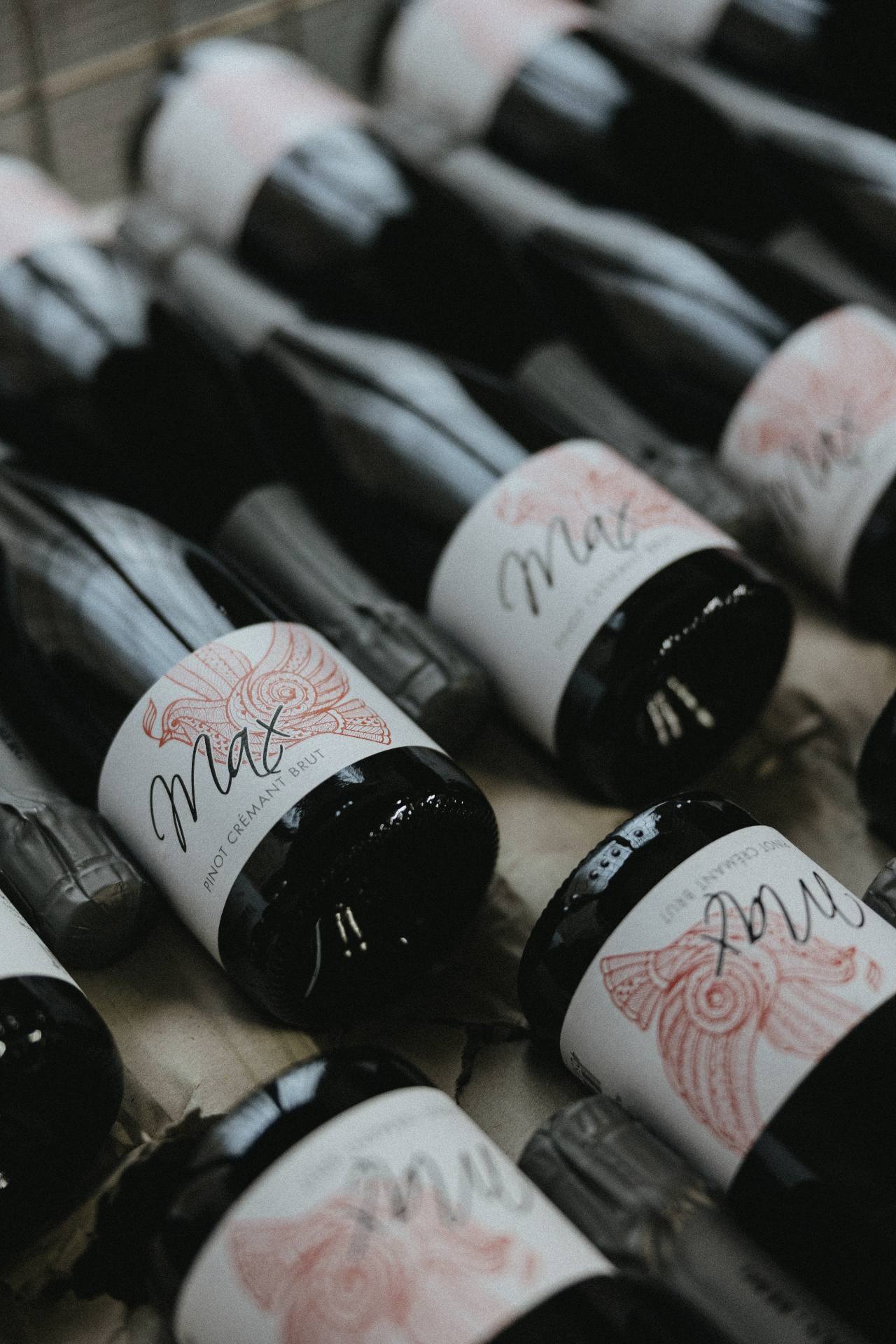
Elbling and burgundy grapes grow best here on limestone soils
The fact that the Frieden-Berg vineyard can produce Elbling of exceptional quality is due to the region, which offers the perfect conditions with its typical, precious shell limestone soils. Rich nutritive soils and good climatic conditions are present. Seven different grape varieties are grown on the 13-hectare estate: Elbling, Müller-Thurgau, Pinot Blanc, Auxerrois, Pinot Gris, Pinot Noir and Dornfelder. When the grapes have reached full maturity, they are transported to the cellar as quickly as possible. There they are gently fermented with the yeast, which is sometimes even natural. This process takes place in modern, steel, stainless steel tanks or small, wooden barriques, in which the wines are stored until they have fully developed their flavor. Special attention is also paid to the in-house sparkling wines, which are produced using the traditional Champenoise method.
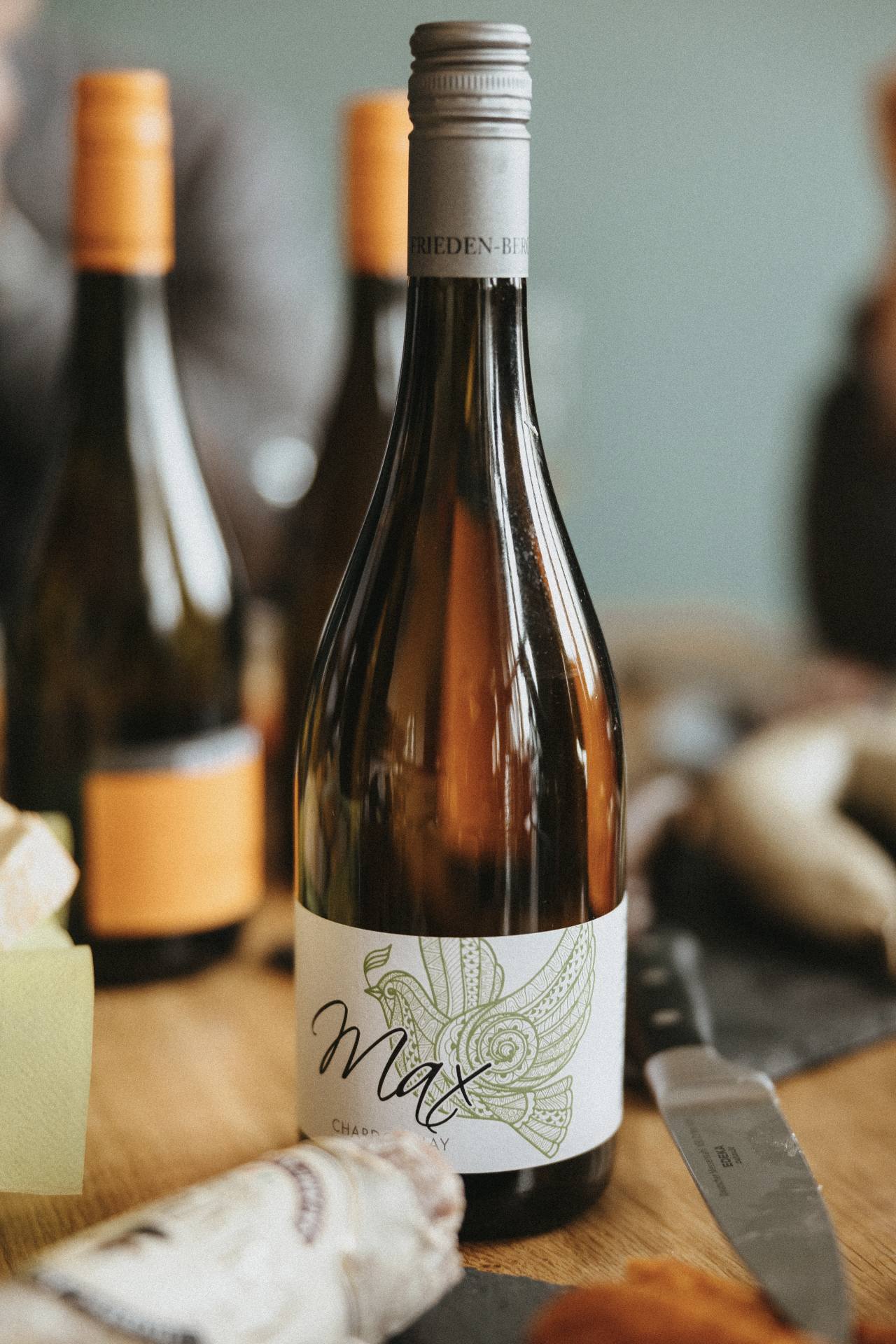
Wine assortment
Elbling
Pinot Blanc
Pinot Gris
Crémant Pinot
Crémant Elbling
Sauvignon
Auxerrois
Chardonnay
Winemaking philosophy and quality management
Fermented spontaneously, the wines of Kesselstatt have a stubborn nature that is worth discovering. Quality is a priority. That's why careful manual harvesting and careful selection on the sloping vineyards are part of the daily wine routine, as is the care of particularly old and valuable Riesling vines. Quality can be further improved by viticultural measures such as bunch splitting and green harvesting to reduce yields, as well as leaf removal from the bunch area in early September to reduce botrytis attack. In addition, care is taken to preserve the natural environment of the vines. In order to guarantee perfect quality management in the vineyard and thus enable the production of an exceptional wine, the winemaking team at Reichsgraf von Kesselstatt carries out a strict classification of the terroirs, in accordance with its membership in the Association of Classified German Wine Estates (VDP). Thus, the Riesling impresses with its excellent quality, its elegant minerality and its incomparable lightness.
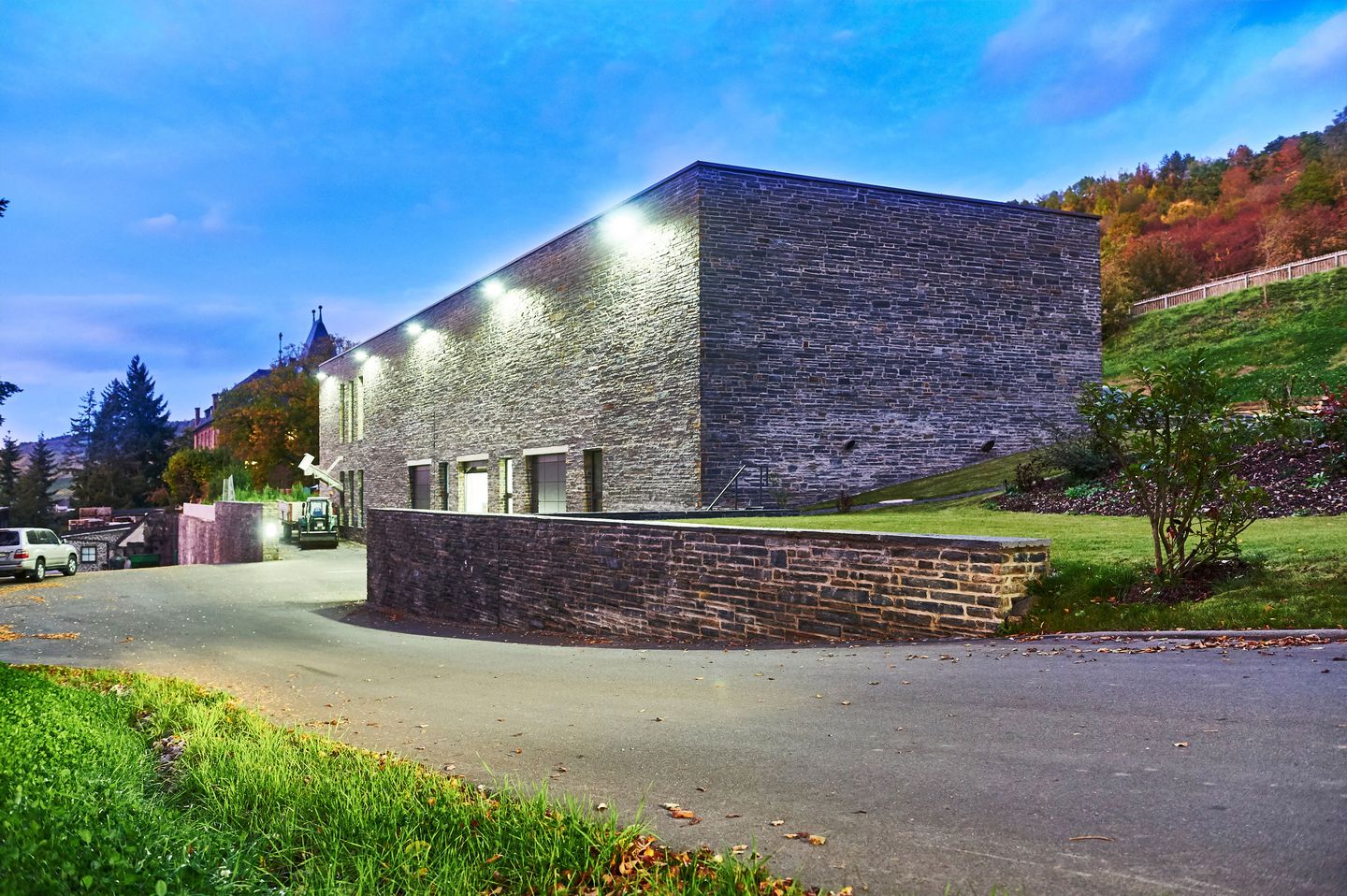
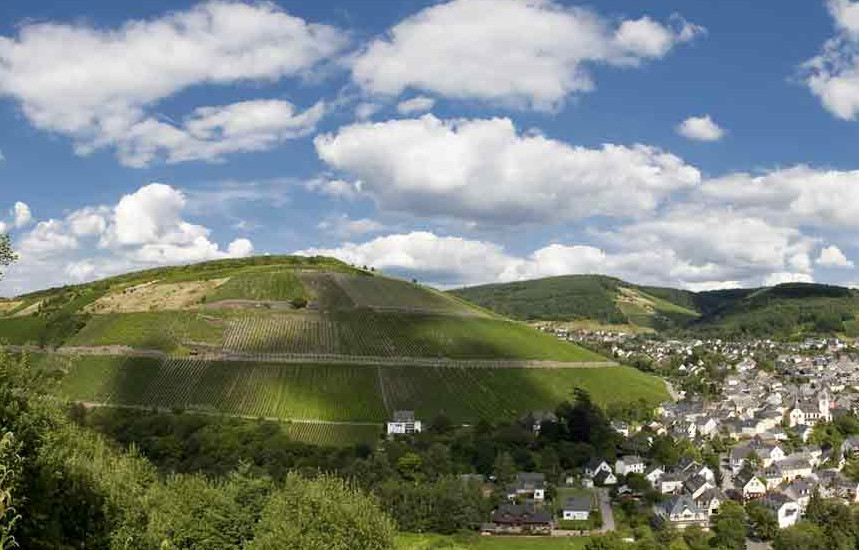
Expressive wines with terroir characteristics
A lot of manual work is required in the steep slopes of the Reichsgraf von Kesselstatt winery. Soils and vines must be cared for in the best possible way, taking into account the weather conditions. Yield-reducing methods such as grape splitting and green harvesting increase the quality of the remaining grapes, while foliage work ensures good yields. At harvest, the grapes are once again rigorously selected so that only the best grapes become wine. Fermentation is as spontaneous as possible and usually in stainless steel tanks, so that the special characteristics of the terroir are preserved. The Grosses Gewächse of the Reichsgraf von Kesselstatt winery are predominantly aged in wooden barrels. Due to the long fine yeast storage, the wines gain in complexity.
The Reichsgraf von Kesselstatt winery cultivates a total of 46 hectares on the Moselle, Saar and Ruwer rivers, including numerous top sites. The soils are characterized by slate and give the Rieslings a pleasant minerality. Juicy, with fine fruit aromas, the entry-level cuvées offer uncomplicated enjoyment. The VDP Domain wines follow in the quality pyramid with a concentrated and racy Riesling from old vines. The VDP.Ortswein Riesling from Kasel impresses with its aromas of exotic fruits and its enormously long finish. For a special treat, the connoisseur reaches for the VDP.Großes Gewächs from the Reichsgraf von Kesselstatt winery and lets the minerality of the filigree Riesling "Piesporter Goldtröpfchen" dance on the tongue.
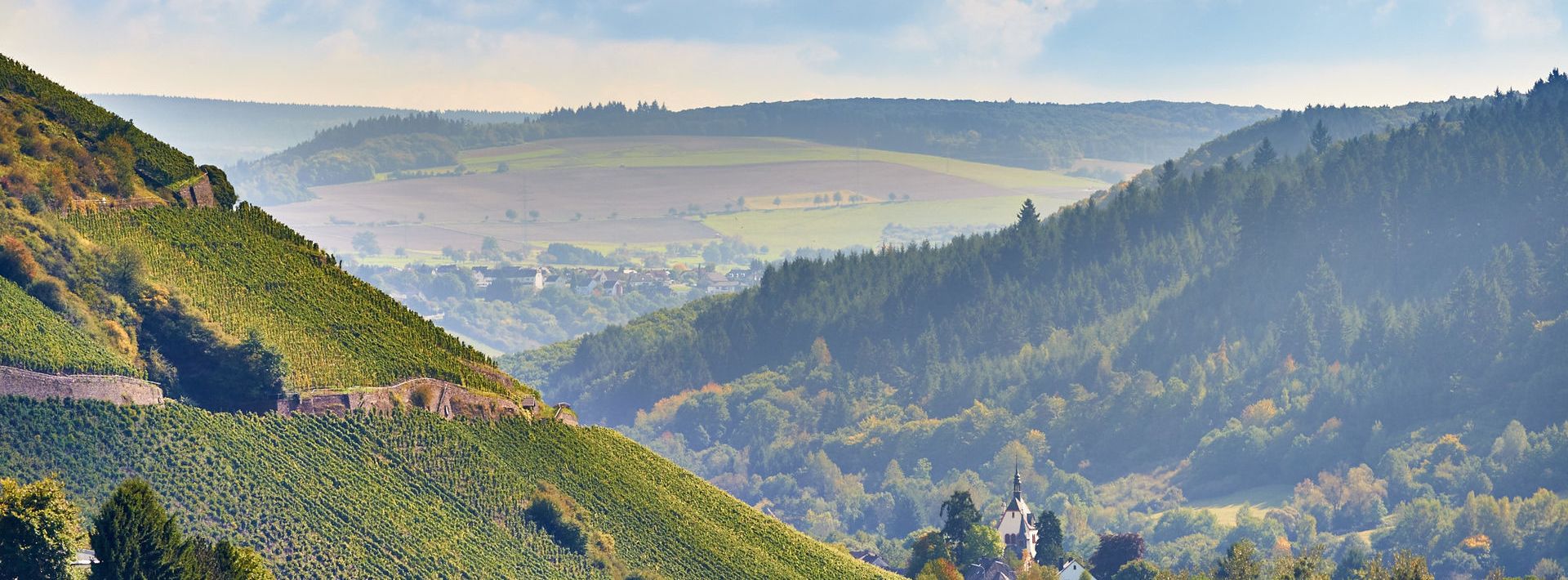
Awards from the press

Falstaff 2022 - 3 Stars
Falstaff 3 Sterne - Winery known for contineous outstanding quality
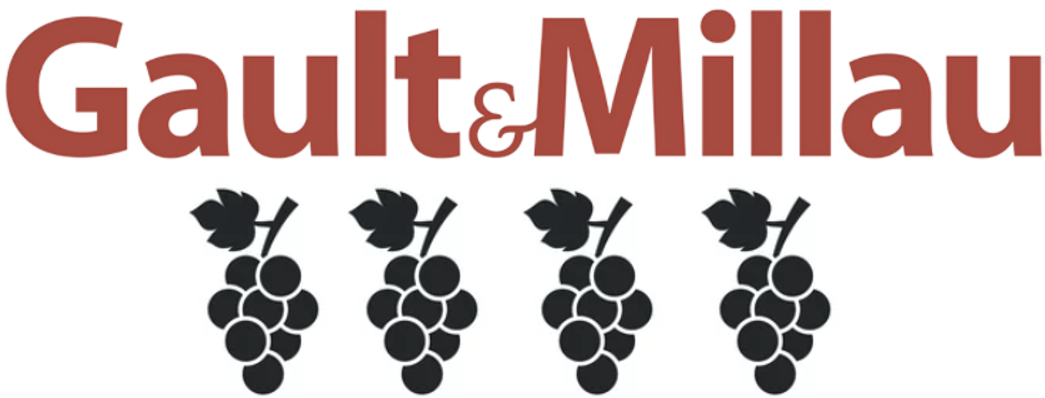
Gault & Milllau - 4 Grapes -Germany Top Ranking
The traditional winery in Schloss Marienlay has been one of the region's flagships for decades. Only a few wineries in the Moselle growing region have such a wide range of potential sites, including the unique monopollage Josephshöfer near Graach. The extensive property also includes parcels in the legendary Scharzhofberg, whose distinctive Rieslings are world-famous.














